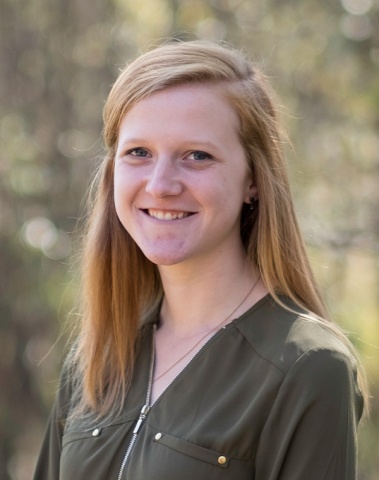We must be willing to constantly reassess our assumptions to improve policies and programming to keep the people at the center.”

Caroline Andridge
First job out of the Ford School: Research Associate, Global Health, Economics & Development, Council on Foreign Relations
Even in high school, Caroline Andridge (BA '14) had a vision of shaping policy that would impact an individual’s quality of life. She came to Michigan already intending to apply to the Ford School.
She said: "I was drawn to the ability to dig into the words and impacts of the policies themselves. When I spoke to another school's admission team, they told me my policy vision was 'a bit unrealistic.' When I presented that same vision and passions to the Michigan advisor, they gave me a list of Michigan and Ford School alumni that were doing things remarkably similar to what I dreamt up and listing courses that would help me get there."
Now, after obtaining her BA in public policy, Andridge is living out that dream as a U.S. policy specialist at USAID’s Bureau for Humanitarian Assistance (BHA). On a typical day, she analyzes policies and procedures for humanitarian responses, though she's currently on a 2-month assignment with BHA's Democratic Republic of the Congo Ebola Response Management Team (RMT). This has been an exciting change of pace for Andridge; "My normal policy role has a much broader focus and is further from the field, so the opportunity to connect more with field staff and country context is exciting," she said, "The RMT has a more immediate impact on people and communities, as it supports implementing partners to provide vaccines, therapeutics, and other resources necessary to stop the spread of the disease."
Specifically, Andridge is helping coordinate the U.S. government humanitarian response to the Ebola outbreak in northwestern DRC. This temporary assignment has given her a full-circle perspective of the impact of her normal work with USAID’s BHA. "The policies and procedures my department analyzes help make the humanitarian and resilience programs BHA funds possible," she said. Andridge is no stranger to fieldwork coordination, having worked with the Clinton Health Access Initiative (CHAI) in its implementation of HIV prevention programming in clinics across South Africa shortly after graduating from the Ford School. "My work with CHAI exposed me to the realities of project implementation in the field," she said, "These experiences inform how I approach my policy role at USAID. Knowledge of the field and constraints that implementers face is critical to making sound policy decisions that aren't tone deaf to implementing partner needs."
Andridge emphasized the importance of humility in this line of work. "We must be willing to constantly reassess our assumptions to improve policies and programming to keep the people at the center," she said. Andridge continued, "I believe strongly in the dignity of the human person. This work allows me to fight for resources and a basic quality of life that I believe every human deserves."
